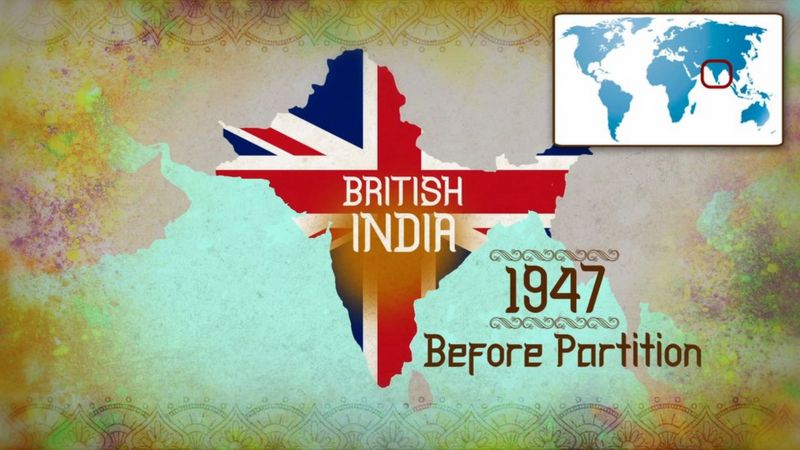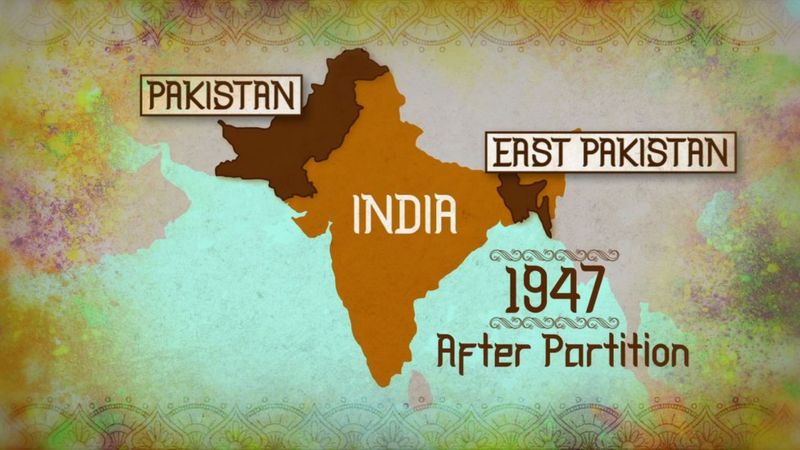by PERRY ANDERSON


By 1945, the era of Gandhi was over, and that of Nehru had begun. It is conventional to dwell on the contrasts between the two, but the bearing of these on the outcome of the struggle for independence has remained by and large in the shadows. Nor are the contrasts themselves always well captured. Nehru was a generation younger; of handsome appearance; came from a much higher social class; had an elite education in the West; lacked religious beliefs; enjoyed many an affair. So much is well known. Politically more relevant was the peculiar nature of his relationship to Gandhi. Inducted into the national movement by his wealthy father, a pillar of Congress since the 1890s, he fell under Gandhi’s spell in his late twenties, at a time when he had few political ideas of his own. A decade later, when he had acquired notions of independence and socialism Gandhi did not share, and was nearly forty, he was still writing to him: ‘Am I not your child in politics, though perhaps a truant and errant child?’ The note of infantilism was not misplaced; the truancy, in practice, little more than coquetry. Like so many others, dismayed by Gandhi’s scuttling of Non-Cooperation in 1922, in despair at his fast against the introduction of Untouchable electorates in 1932, baffled by his reasons for suspending civil disobedience in 1934, he nevertheless each time abased himself before his patron’s judgment.
Sacralisation of the national movement? ‘I used to be troubled sometimes at the growth of this religious element in our politics,’ but ‘I knew well that there was something else in it, something which supplied a deep inner craving of human beings.’ The fiasco of Non-Cooperation? ‘After all, he was the author and originator of it, and who could be a better judge of what it was and what it was not. And without him where was our movement?’ The fast unto death at Poona? ‘For two days I was in darkness with no light to show the way out, my heart sinking when I thought of some results of Gandhiji’s action … And then a strange thing happened to me. I had quite an emotional crisis, and at the end of it I felt calmer and the future seemed not so dark. Bapu had a curious knack of doing the right thing at the psychological moment, and it might be that his action – impossible as it was to justify from my point of view – would lead to great results.’ The claim that God showed his displeasure with civil disobedience by visiting an earthquake on Bihar? He had been ‘dragged away from the anchor’ of his faith by Bapu’s announcement, but deciding his mentor’s action was right, ‘somehow managed to compromise’. For ‘what a wonderful man was Gandhiji, after all.’ All these avowals date from 1936, when Nehru was politically more radical – ‘inclining to a communist philosophy’ – than at any other time in his career. By 1939 he was simply exclaiming: ‘India cannot do without him.’
In this degree of psychological dependence, different strands were intertwined. Quasi-filial infatuation with Gandhi was not peculiar to Nehru, but the depth of parental affection – withheld, often with extraordinary harshness, from his own children – Gandhi felt for Nehru was unique. Mingled with these emotional bonds were calculations of mutual interest. So long as he operated in the ambit of Congress, Gandhi could count on Nehru never taking adult political issue with him, while as Gandhi’s favourite, Nehru could count on prevailing over rivals to head Congress, and after independence, to rule the country. Still, was there not even so an intellectual gulf between them? In one fundamental respect, indeed there was. Nehru never had any time for Gandhi’s extraterrestrial dreams or earthly archaisms. He was a strictly intramundane believer in the benefits of industry and modernity. Yet this was not a dividing line that mattered much, so long as state power was out of reach. Where the political outlook of the national movement under the Raj was concerned, there was far less distance between mentor and pupil than the contrast in their cultural backgrounds might have suggested.
Gandhi did not claim much book learning. In London, he had found his legal textbooks full of interest – a manual on property law ‘read like a novel’ – but Bentham too difficult to understand. Tracts by Ruskin and Tolstoy were a revelation in South Africa. In prison in India he came to the conclusion that Gibbon was an inferior version of the Mahabharata, and that he could have written Capital better than Marx. What fixed his attention were the short list of works he had read by the time he came to write Hind Swaraj, and a limited number of Hindu classics. When he left South Africa, his basic ideas about the world were essentially complete. Not in more books, but in himself lay truth. ‘I have searched far and wide for another individual, placed in comparable circumstances, who has used the first person singular with such unabashed abandon as M.K. Gandhi,’ wrote one Indian critic, warning of the dangers of ‘such cocksureness in an ill-stocked mind’.
Nehru had enjoyed the higher education Gandhi didn’t have, and an intellectual development not arrested by intense religious belief. But these advantages yielded less than might be thought. He seems to have learned very little at Cambridge, scraping a mediocre degree in natural sciences that left no trace thereafter, did poorly in his bar exams, and was not much of a success when he returned to practise law in his father’s footsteps. The contrast with Subhas Chandra Bose, a brilliant student of philosophy at Cambridge, who was the first native to pass the exams into the elite ranks of the Indian civil service and then decline entry to it on patriotic grounds, is striking. But an indifferent beginning is no obstacle to subsequent flowering, and in due course Nehru became a competent orator and prolific writer. What he never acquired, however, was a modicum of literary taste or mental discipline. His most ambitious work, The Discovery of India, which appeared in 1946, is a steam bath of Schwärmerei. It would be unfair to compare Nehru to Ambedkar, the leader of the Untouchables, intellectually head and shoulders above most of the Congress leaders, owing in part to far more serious training at the LSE and Columbia. To read Ambedkar is to enter a different world. The Discovery of India – not to speak of its predecessor The Unity of India – illustrates not just Nehru’s lack of formal scholarship and addiction to romantic myth, but something deeper, not so much an intellectual as a psychological limitation: a capacity for self-deception with far-reaching political consequences.
‘India was in my blood and there was much in her that instinctively thrilled me,’ he told his readers.
She is very lovable and none of her children can forget her wherever they go or whatever strange fate befalls them. For she is part of them in her greatness as well as her failings, and they are mirrored in those deep eyes of hers that have seen so much of life’s passion and joy and folly and looked down into wisdom’s well.
Not all of The Discovery of India is of similar quality. But the Barbara Cartland streak was never far from the surface:
Perhaps we may still sense the mystery of nature, listen to its song of life and beauty, and draw vitality from her. That song is not sung in the chosen spots only, and we can hear it, if we have the ears for it, almost everywhere. But there are some places where it charms even those who are unprepared for it and comes like the deep notes of a distant and powerful organ. Among those favoured spots is Kashmir, where loveliness dwells and an enchantment steals over the senses.
A mind capable of prose like this was unlikely to show much realism about the difficulties facing the national movement.
When Gandhi was blackmailing Ambedkar to submit to the demand that Untouchables be treated as loyal Hindus within the caste system, rather than pariahs excluded from it, Nehru uttered not a word in solidarity or support for Ambedkar. Gandhi was fasting, and even though the lot of the Untouchables was a ‘side-issue’, as Nehru significantly dismissed it, that was enough. More was involved here, however, than simple unwillingness to differ with Gandhi on any issue on which he chose to take a political stand. Nehru, as he often confessed, was no believer: the doctrines of Hinduism meant little or nothing to him. But, in much the same artless way as Gandhi, he identified the religion with the nation, explaining that ‘Hinduism became the symbol of nationalism. It was indeed a national religion, with its appeal to all those deep instincts, racial and cultural, which form the basis everywhere of nationalism today.’ By contrast Buddhism, though born in India, had lost out there because it was ‘essentially international’. Islam, not even born in India, was inevitably even less national.
It followed that the system Gandhi had always insisted was the foundation on which Hinduism rested, historically preserving it from disintegration, had to be presented in a roseate light. Caste had its tares, of course, as Gandhi too conceded. But in the larger view of things, Nehru explained, India had no reason to hang its head. ‘Caste was a group system based on services and functions. It was meant to be an all-inclusive order without any common dogma and allowing the fullest latitude to each group.’ Mercifully free from what had handicapped the Greeks, it was ‘infinitely better than slavery even for those lowest in the scale. Within each caste there was equality and a measure of freedom; each caste was occupational and applied itself to its own particular work. This led to a high degree of specialisation and skill in handicrafts and craftsmanship’, in a social order that was ‘non-competitive and non-acquisitive’. Indeed, far from embodying any principle of hierarchy, caste ‘kept up the democratic habit in each group’. Later generations, hard put to take in that Nehru could have composed such enormities, can point to other passages in which he added that ‘in the context of society today’ – as opposed to the (undated) past – caste had become a ‘barrier to progress’ that was no longer compatible with democracy, political or economic. Untouchability, as Ambedkar would note bitterly, Nehru never so much as mentioned.
London Review of Books for more
